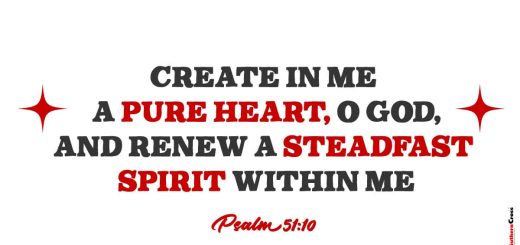First Sunday in Lent Reflection
Struggle can either form us, or it can deform us. We all know what it means to live in a world that is anxious, fearful, under great stress and endlessly driven. In our families and among our friends there are so many who suffer from desolation and desperation, feeling lost and depressed.
Lent is an opportunity for each one of us to walk with Jesus into the desert of our own lives so as to find consolation, authenticity and peace.
Crossing this desert and learning to let go, to see clearly, and to live simply, this is the way of the desert fathers and mothers who have shown us this path from the fourth century. As the author of “crossing the desert”, Robert Wicks, reminds us that learning what not to take, is as important as what to take on this journey. This is often a “who” that we need to let go of; those who pull us down, hold us back and bind us to all that is destructive for our lives.
The journey of our transformation into the desert requires inner freedom centred on spiritual wisdom and compassion, moving away from erratic, self-serving, and undisciplined lives towards single-heartedness, purity of heart and peace. The desert Abbas and Ammas followed the road of being desert apprentices, always beginners for the purpose of being spiritual mentors, becoming for others that healing presence through the listening spirit we are all called to provide to each other.
“Happiness consists in finding out precisely what the “one thing necessary” maybe, in our lives, and in gladly relinquishing all the rest. For then, by a divine paradox, we find that everything else is given us together with the one thing we needed.” ― Thomas Merton, No Man Is an Island
Jesus, in the line of sages and prophets before him, constantly withdrew into the wilderness for silence and solitude. Jesus’ priority for solitude and silence is to be found everywhere in the Gospels. From the beginning of his ministry to every important decision.
It was in solitude and silence that Jesus dealt with painful emotions like grief, the constant demands of his ministry; silence and solitude were how Jesus cared for his own soul and how he taught his disciples, and finally how he prepared for his own death on the cross.
For Jesus, the wilderness was a place of preparation and a place of making decisions. In the kingdom of this world, it is greed, power, and prestige that rule a world of domination as we see in the temptations of Christ.
In this worldly kingdom, there are all kinds of distinctions created by our human society. Age, wealth, fame and public image are rankings that we use to slot people into. Nearly every society in the history of the world has developed its class or caste system. Circumstances of birth, wealth, privilege and education have divided men and women from each other.
This is the kingdom of the world as opposed to God’s Kingdom.
Pope Emeritus Benedict the 16th, speaks about this call into the desert, “The desert is a place of silence and solitude where we stand apart from the events of every-day. There we escape from noise and superficiality. The desert is the place of the absolute, of freedom, where our deepest needs confront us. It is not by chance that the desert is where monotheism is born. In this sense it is the home of grace were emptied of all our concerns, we meet our Creator. Great things have their beginning in the desert, in silence and poverty. We ourselves could not know how to take part in the mission of the Gospel without entering into this desert experience with its nakedness and hunger.
The blessed hunger of which our Lord speaks in the Sermon on the Mount could not come to birth out of the sufficiency of the well-fed. Let us not forget, either, that Jesus’ desert did not come to its term with the forty days following his baptism. His last and final desert would be expressed in Psalm 22[21]: «My God, my God, why have you abandoned me? It was from this desert that the waters of the life of the world would well up.”
The reality of the desert teaches us about the necessity of relationships, hospitality, and compassion. It is within this vision that we can re-evaluate our lives and come to understand what stands in the way of our inner freedom. The approach of the desert mothers and fathers was the way of ordinariness practicing sound practical knowledge to come to full wisdom so as to attain their full humanity. They thus created for themselves a pure space uncontaminated by insecurity, self-interest, pride and those many inner Demons that plague us.
The one thing that stands out like a light in all of their lives: in them, there was no guile to be found, their lives were transparent and free. Their words were never twisted or used in any way of dominance, there was never any sarcasm, clever wit or philosophy; their word was their word. In this way of simplicity, they discovered their own authentic humanity that led them to live lives that were filled with compassion and gentility in their dealings with others.
This was the way that St Francis also found centuries later. There can be no trace of clever trickery in the recovery of our authentic humanity. Returning to our true humanity in this little way of ordinariness, they found the strength to overcome prejudice, defy compulsions and strike out fearlessly into the unknown.
May the Lord continue to walk with each one of us as we journey into the desert this Lent.
- The Church Year and Advent - December 1, 2024
- Easter Sunday Reflection: The Way – Love Overcomes Violence & Death - March 29, 2024
- Palm Sunday Reflection: Re-Espousing And Anointing - March 22, 2024






